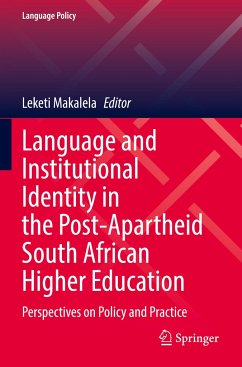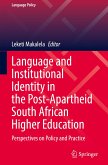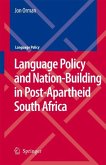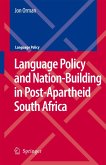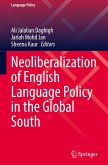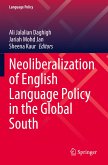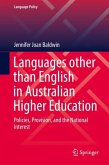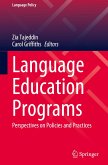This book examines the intersections between education, identity formation, and language in post-apartheid South Africa with specific attention to higher education. It does so against the backdrop of the core argument that the sector plays a critical role in shaping, (re)producing and perpetuating sectoral, class, sub-national and national identities, which in turn, in the peculiar South African setting, are almost invariably analogous with the historical fault lines determined and dictated by language as a marker of ethnic and racial identity. The chapters in the book grapple with the nuances related to these intersections in the understanding that higher education language policies - overt and/or covert - largely structure institutional cultures, or what has been described as curriculum in higher education institutions. Together, the chapters examine the roles played by higher education, by language policies, and by the intersections of these policies and ethnolinguistic identities in either constructing and perpetuating, or deconstructing ethnolinguistic identities upon which the sector was founded. The introductory chapter lays out the background to the entire book with an emphasis on the policy and practice perspectives on the intersections. The middle chapters describe the so-called "White Universities", "Black Universities" and "Middle-Man Minorities Universities". The final chapter maps out future directions of the discourses on language and identity formation in South Africa's higher education.
Bitte wählen Sie Ihr Anliegen aus.
Rechnungen
Retourenschein anfordern
Bestellstatus
Storno

